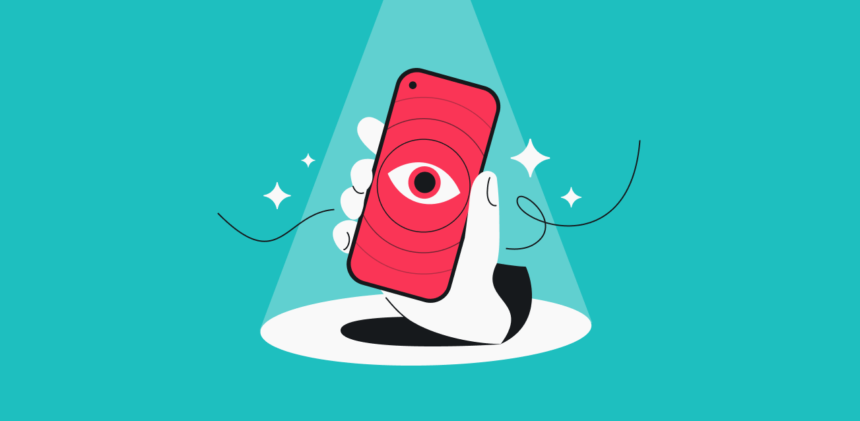In an age where our smartphones are extensions of ourselves, the possibility of an iPhone being compromised by spyware is a chilling thought. Spyware is a type of malicious software designed to infiltrate your device, steal your data, and monitor your activities without your consent. With the increasing sophistication of such threats, it’s crucial to be vigilant and aware of the signs that indicate your iPhone may have been invaded. This article explores the telltale symptoms of spyware, how to remove spyware from an iPhone, and how you can protect your device from these intrusive programs.
Unmasking the Enemy: What Exactly is Spyware?
Spyware comes in various forms, each with a unique method of infiltrating your iPhone. Common types include keyloggers, which capture everything you type, and tracking software that monitors your location and activities. Spyware can find its way onto your device through malicious apps, phishing links, and even unsecured Wi-Fi networks. Understanding what spyware is and how it operates is the first step in defending your iPhone against it.
Draining Fast? How Spyware Saps Your iPhone’s Battery
One of the most noticeable signs of spyware is a rapidly draining battery. Since spyware operates continuously in the background, it can significantly affect your device’s battery life. If you notice that your iPhone’s battery is depleting faster than usual, even with minimal use, it could be due to spyware running unseen. Monitoring your battery usage in the settings can help you identify unusual consumption patterns that may point to spyware.
Data Disappearing? Spyware Might Be Stealing Your Gigabytes
Spyware often requires an internet connection to transmit the stolen data to its source, leading to increased data usage. If your data consumption has spiked without any corresponding increase in your activities, spyware could be the culprit. Keep an eye on your data usage through your phone’s settings or your carrier’s app, and be wary of unexplained spikes in data usage.
Acting Up? The Strange Signs Your iPhone Is Infected
Spyware can cause your iPhone to behave erratically. Symptoms include frequent app crashes, slow performance, and an unresponsive interface. If your iPhone is acting up without any apparent reason, it’s worth investigating further. Restarting your device or performing a factory reset might temporarily alleviate these issues, but identifying the root cause is essential for a long-term solution.
Who Invited These Apps? Spotting Intruders on Your iPhone
One clear indication of spyware is the presence of unfamiliar apps on your iPhone. These apps often operate discreetly, making it difficult to spot them. Regularly review the list of installed apps and delete any that you don’t recognize or didn’t install yourself. Pay close attention to apps with generic names or icons, as these are often designed to blend in and avoid detection.
Hot to the Touch? The Overheating Clue to Spyware Presence
Spyware can cause your iPhone to overheat due to the constant background activity it performs. If your device feels unusually warm to the touch, even when not in use, spyware could be the reason. Overheating can also lead to other performance issues and shorten your device’s lifespan, so it’s crucial to address this symptom promptly.
Annoying Pop-Ups? Why Unwanted Ads Could Mean Spyware
Frequent pop-ups and ads are not just annoying; they can also indicate the presence of adware, a type of spyware. Adware not only disrupts your user experience but also compromises your privacy by tracking your browsing habits. If you’re bombarded with pop-ups or redirected to suspicious websites, it’s a sign that your iPhone might be infected with adware.
What’s Happening Back There? Identifying Suspicious Background Activity
Spyware often operates stealthily in the background, making it difficult to detect. However, you can monitor your iPhone’s background activity through the settings. Check the battery usage by app and look for any unfamiliar or unusually active processes. This can help you identify potential spyware that might be lurking unseen.
Red Flags: Don’t Ignore These Security Alerts and Warnings
Security alerts and warnings from Apple or antivirus apps should never be ignored. These notifications can provide critical information about potential threats to your device. Regularly updating your iPhone’s software and keeping an antivirus app installed can help you stay ahead of spyware and other malicious threats.
Your iPhone’s Shield: Best Practices to Keep Spyware at Bay
Protecting your iPhone from spyware requires a combination of good habits and proactive measures. Here are some best practices to keep your device secure:
- Install Trusted Apps Only: Download apps exclusively from the Apple App Store, and always read reviews and permissions before installation.
- Regular Updates: Keep your iPhone’s operating system and apps up to date to ensure you have the latest security patches.
- Use Strong Passwords: Implement strong, unique passwords for your Apple ID and other important accounts.
- Enable Two-Factor Authentication: Add an extra layer of security to your accounts by enabling two-factor authentication.
- Avoid Public Wi-Fi: Use a secure, private Wi-Fi connection whenever possible, and consider using a VPN for added security.
Stay One Step Ahead: Vigilance and Protection Against iPhone Spyware
In conclusion, while the thought of spyware on your iPhone is alarming, being aware of the signs and taking proactive steps can significantly reduce the risk. By monitoring your device for unusual behavior, regularly updating your software, and practicing good security habits, you can protect your iPhone from spyware invasion. Stay vigilant, and don’t hesitate to take action if you suspect your device has been compromised. Your privacy and security depend on it.






